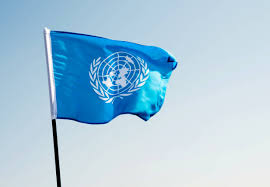UN Sends Ceasefire Observers to Iran-Israel Frontlines
The United Nations announced on June 24 the deployment of unarmed international observer teams to key hotspots across southern Lebanon, northern Israel, and western Iran. This strategic move stems from the recently negotiated ceasefire agreement reached during high-stakes Geneva talks, aimed at defusing the escalating hostilities between Israel and Iran.
The initiative is spearheaded by the UN Department of Peace Operations (DPO), which will oversee monitoring activities on the ground. Observer teams are composed of military and civilian personnel from Finland, India, Ghana, and Uruguay—nations chosen for their neutrality and longstanding peacekeeping reputations. These teams have been assigned the task of verifying compliance with the ceasefire, observing proxy force activity (particularly from Hezbollah), and documenting any violations. All findings will be channeled directly to the United Nations Security Council in bi-weekly assessments, with urgent alerts issued in cases of major breaches.
To strengthen operational capacity, observer teams will be equipped with advanced GPS tracking systems, aerial surveillance drones, and field communication networks. Additionally, each unit includes civilian liaisons to maintain dialogue with local populations and authorities. Although the mission shares some framework similarities with past peacekeeping efforts such as UNIFIL in Lebanon and the post-JCPOA inspections in Iran, this deployment features a new "tripwire mechanism," triggering instant alerts upon detection of live fire or unauthorized troop movements.
UN Secretary-General António Guterres described the deployment as a "vital confidence-building step," underscoring its role in lending credibility to a fragile truce. "The presence of impartial observers can reduce the fog of war, limit misinformation, and enhance accountability," Guterres said in a statement.
Still, operational challenges loom. Iran has placed limitations on observer access near sensitive military sites, citing national security concerns. Meanwhile, Israeli authorities have signaled they will retain the right to restrict entry into high-risk security zones. These access restrictions have sparked debate about the mission's potential effectiveness.
Reactions from local communities have varied. Residents in southern Lebanon generally welcomed the presence of UN personnel as a protective measure against renewed cross-border violence. Conversely, some northern Israeli civilians voiced apprehension, expressing concern that observers could inadvertently provide cover for Hezbollah operatives. Iranian state media cautiously endorsed the initiative, but official statements from Tehran emphasized the mission’s strictly non-military nature.
According to diplomatic insiders, the observer teams will rotate every six weeks, with discussions underway to co-locate some teams alongside International Committee of the Red Cross (ICRC) staff to streamline humanitarian relief efforts. This coordination may improve access to civilian zones under strain from the ongoing conflict.
Military analysts suggest that the visibility of international monitors may deter armed proxy groups, including factions in Iraq and Yemen, from expanding the conflict’s scope. However, experts caution that the success of the initiative will hinge on timely reporting and whether the Security Council has the political will to act on reported violations.
In the financial sphere, markets reacted with measured calm. Oil prices remained stable, signaling investor confidence in the short-term impact of the ceasefire monitoring. Risk-sensitive assets showed minimal volatility, though traders remain alert to the possibility of renewed disruptions if violations continue unchecked.
The launch of this UN observer mission marks a significant development in international peacekeeping efforts. While its capacity to enforce peace is limited, its real value may lie in its ability to bear witness and establish a credible record of events on the ground. As the region teeters between fragile calm and potential resurgence of hostilities, the success of this monitoring initiative could prove pivotal in shaping the next phase of Middle Eastern geopolitics.
News Source: https://www.reuters.com/world/middle-east/un-observers-deployed-ceasefire-israel-iran-2025-06-24/








